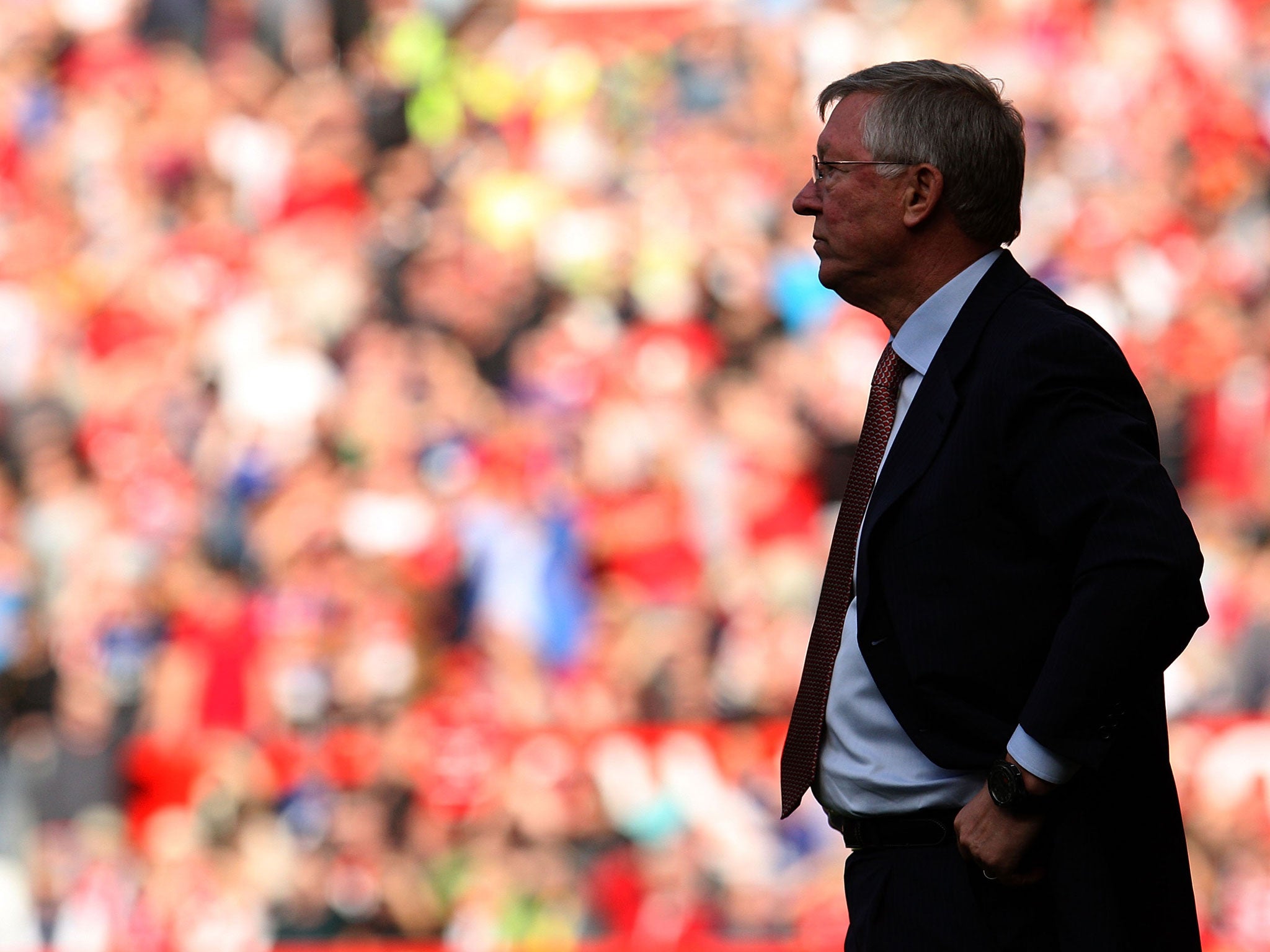First we loathed him, then we loved him: Alex Ferguson's appeal transcends football tribalism
The Scot has calmed to the point where opposing fans can appreciate his natural roguishness above the nastier side of his gamesmanship

Your support helps us to tell the story
From reproductive rights to climate change to Big Tech, The Independent is on the ground when the story is developing. Whether it's investigating the financials of Elon Musk's pro-Trump PAC or producing our latest documentary, 'The A Word', which shines a light on the American women fighting for reproductive rights, we know how important it is to parse out the facts from the messaging.
At such a critical moment in US history, we need reporters on the ground. Your donation allows us to keep sending journalists to speak to both sides of the story.
The Independent is trusted by Americans across the entire political spectrum. And unlike many other quality news outlets, we choose not to lock Americans out of our reporting and analysis with paywalls. We believe quality journalism should be available to everyone, paid for by those who can afford it.
Your support makes all the difference.We’ll all be swamped in this stuff for the next few days, so let’s speed through the formalities: as manager of Manchester United between 1986 and 2013, Ferguson was a prodigy. He marshalled English club football into and through a golden era. Behind him to prove it stand trophies from 13 Premier League and two Champions League campaigns; by his feet lie the countless pieces of chewing gum that paved the Scotsman’s way to glory, masticated with the same precise and unvarying level of ferocity he seemed to bring to all aspects of managing a football club.
Paeans from fans and players will fill in much of the rest – the hairdryers, the wine, the text messages to fellow managers and the pleasure in mind-games. What might be missed, however, is what exactly lifted Ferguson above the tribal loyalties of football fans and turned him in to something approaching a – there’s no avoiding it – national treasure. Because tonight there will be little carping on ArsenalMania or BlueMoon or the ShedEnd fan forums. Pints will be sunk respectfully, even a little morosely, in pubs around the country. The contrast with Margaret Thatcher’s passing – which timing invites us to make in face of obvious absurdities (not the least being that Ferguson is alive) – couldn’t be much clearer. The Tungsten Scot, Britain’s other defining leader of the late 20th century, leaves his job to applause – not bitter discord.
Part of this has to do with the mellowing of age. Ferguson is now 71, a doyen. Fifteen years or so ago, his style seemed to consist primarily in getting up people’s noses. Keegan crumbled; Wenger snorted; the public wanted anyone to win but Manchester United. Since then the Scot has calmed to the point where opposing fans can appreciate his natural roguishness above the nastier side of this gamesmanship. We will miss the quips - "that lad was born offside" - and the cod poetry: on his first sighting of a young Ryan Giggs, Ferguson recalls: “He was 13 and just floated over the ground like a cocker spaniel chasing a piece of silver paper in the wind”. Curiously, as Ferguson has lost his violent streak football has too – shifting from central midfielders in the brutal mould of Keane to those more cultured, like Michael Carrick.
Another explanation for Ferguson’s broad appeal lies in the increasingly monied nature of his rivals. Before Abramovich and co arrived, Manchester United were the club to hate mainly because they won too much. Now - with the globalisation of the Premier League - you can choose to hate a victorious club because it’s plumped with money extracted from the crumbling of Soviet Russia (Chelsea), or because it treats managers like cabaret turns (Chelsea), or because it has even more money than Chelsea (Manchester City). Hating on Ferguson seems quite parochial by comparison.
It also seems pointless. Unlike most politicians and public leaders, Ferguson earned respect by not caring what the press, and by extension the public, thought of him. Rather than come to press conferences and court approval, he banned whatever reporters irked him, refused to speak to the BBC for years, and generally treated the media like parasites. Treated with such indifference, knowing an inspirational manager lay beneath, we bent towards Sir Alex, a state of affairs Wenger summed up acutely in 2005: “Ferguson does what he wants and you are all down at his feet”. Today we are all down at his feet once more. And you know what, we’re going to miss them very badly indeed.
Join our commenting forum
Join thought-provoking conversations, follow other Independent readers and see their replies
Comments